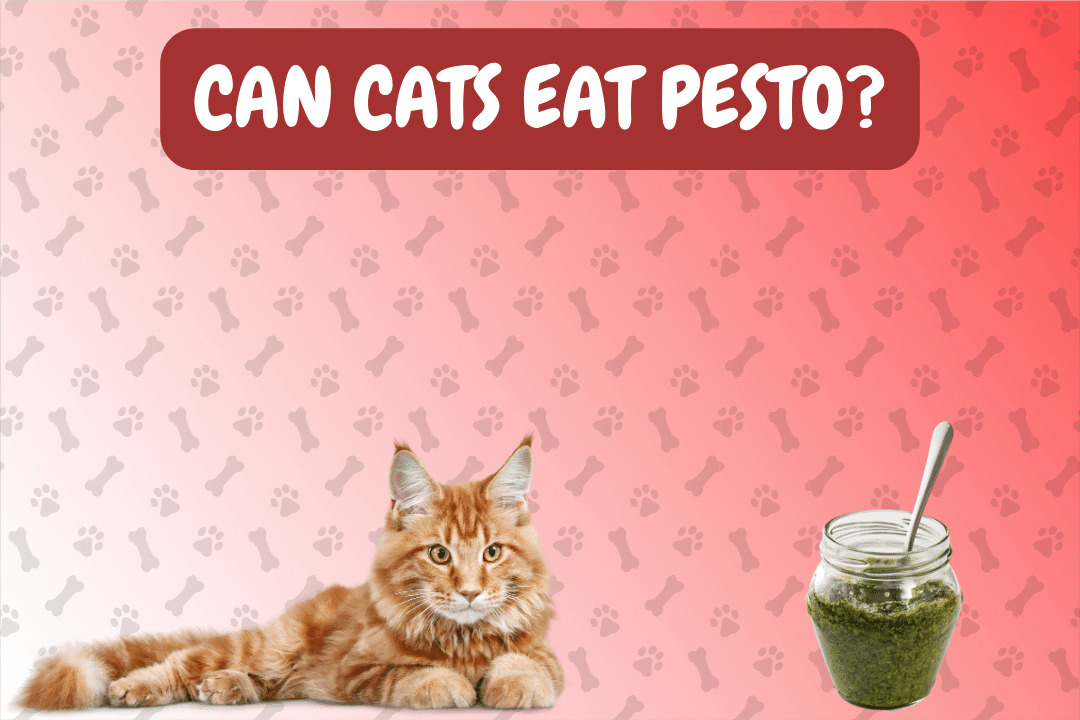No, cats can’t eat pesto because it contains ingredients that are harmful to them.
Table of Contents
Introduction
Pesto, a delicious Italian sauce made primarily from basil, pine nuts, garlic, and olive oil, is a favorite among many food enthusiasts. But can cats eat pesto without consequence? In this article, we’ll explore whether it’s safe for cats to consume pesto, delving into the nutritional value, potential risks, safe serving guidelines, alternative options, special considerations, and expert opinions.
Nutritional Value
Pesto, while delectable for humans, contains ingredients that are unsuitable for cats. Basil, a primary component, can be toxic in large amounts, potentially leading to gastrointestinal upset or more severe issues. Moreover, the high fat content in pesto, primarily from olive oil and pine nuts, can overwhelm a cat’s digestive system, leading to pancreatitis or obesity. Given these factors, it’s best to avoid offering pesto to your feline friend.
Potential Risks
Feeding pesto to cats poses several risks. As mentioned, basil can be toxic in large quantities, leading to symptoms like vomiting, diarrhea, and lethargy. The high fat content in pesto can cause digestive problems and, in the long term, contribute to obesity and associated health issues. Additionally, garlic, another ingredient often found in pesto, is highly toxic to cats and should be strictly avoided.
How to Serve Safely
It’s not recommended to serve pesto to cats. However, if you’re determined to provide a special treat for your pet, you can explore cat-safe alternatives like catnip or cat-friendly treats. Always consult your veterinarian for advice on what treats are safe and appropriate for your specific cat.
Serving Suggestions
As mentioned earlier, pesto is not suitable for cats due to its ingredients, particularly basil, garlic, and high-fat content. Instead, consider offering cat-specific treats or exploring homemade cat treat recipes that use safe ingredients approved by veterinarians.
Special Considerations
Cats have specific dietary needs, and their digestive systems are sensitive. It’s essential to be aware of their unique dietary restrictions and avoid feeding them foods like pesto that can harm their health.
Expert Opinion
Veterinarians and experts unanimously advise against feeding pesto to cats due to the risks associated with its ingredients. It’s crucial to prioritize your cat’s health and well-being by providing them with a balanced, cat-appropriate diet.
Conclusion
In conclusion, cats should not be given pesto. The ingredients in pesto, such as basil and garlic, can be harmful to them, potentially leading to digestive issues, toxicity, and long-term health problems. It’s best to prioritize your cat’s health and choose cat-safe treats and foods to ensure their well-being.
FAQ
Q1: Can cats eat any kind of pesto?
No, cats should not eat any type of pesto, as the ingredients in pesto, like basil and garlic, can be harmful to them.
Q2: What if my cat accidentally eats a small amount of pesto?
If your cat consumes a small amount of pesto, monitor them for any adverse reactions and contact your veterinarian for guidance.
Q3: Are there any cat-safe alternatives to pesto?
Yes, there are cat-safe alternatives like catnip or specially formulated cat treats that you can offer to your feline friend.
Q4: Can I make a pesto with cat-friendly ingredients?
It’s advisable to consult your veterinarian for guidance on making cat-friendly treats, but it’s essential to avoid basil, garlic, and excessive fats in any homemade treats.
Q5: What should I do if my cat shows symptoms of pesto toxicity?
If you suspect your cat has consumed pesto and is showing symptoms of toxicity, contact your veterinarian immediately for proper diagnosis and treatment.
Q6: Can pesto cause allergies in cats?
Pesto ingredients, particularly basil and garlic, can potentially cause allergies in some cats. It’s best to avoid exposing your feline companion to these allergens.
Q7: Why is garlic harmful to cats?
Garlic contains compounds that can be toxic to cats and lead to conditions like hemolytic anemia. It’s best to keep garlic away from their diet.
Q8: Can I feed my cat other herbs like catmint?
Yes, catmint, also known as catnip, is safe and enjoyable for most cats in moderation. It can be a suitable alternative to pesto.
Q9: Is there any safe human food I can share with my cat?
While some human foods are safe for cats, it’s essential to consult your veterinarian for recommendations. Treats specifically designed for cats are the best choice.
Q10: How can I ensure my cat’s diet is healthy and balanced?
To maintain a healthy and balanced diet for your cat, consult with your veterinarian, who can recommend cat-specific food options that meet their nutritional needs.
Keep reading our blog to find more food informations about cats.
Hello! I’m Max Walley, a pet enthusiast who knows a lot about what our animal buddies can munch on and what’s a no-no. With ‘canpeteat.it,’ I’m here to help pet owners make smart food choices. Come with me as we dive into the world of pet nutrition, discovering what keeps our furry pals joyful and in tip-top shape. Let’s explore this adventure together!


